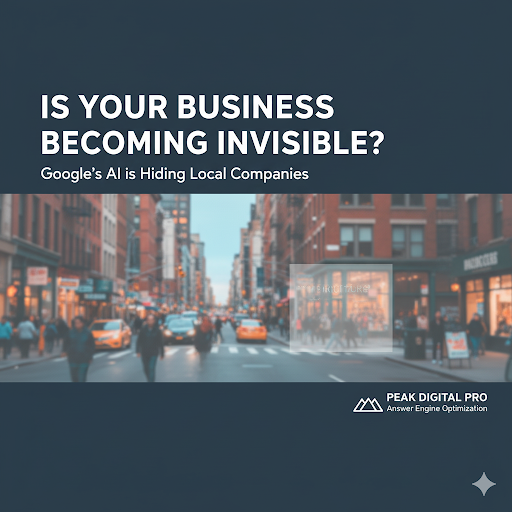SEO-Friendly URLs: A Simple Guide for Business Owners
Most business owners spend hours perfecting their website design and catchy headlines, but they barely think about their web addresses. That sounds odd when you realize SEO-friendly URLs can increase click-through rates by up to 45 percent and make your site easier for Google to index . Simple words and structure can quietly outshine flashy graphics and expensive ad campaigns when it comes to online growth.
Table of Contents
Quick Summary
| Takeaway | Explanation |
|---|---|
| SEO-friendly URLs improve visibility | Clear and concise URLs enhance search engine indexing and attract more visitors. |
| Descriptive URLs build user trust | Informative web addresses increase user confidence and click-through rates. |
| Avoid complex URL structures | Simplifying URLs helps search engines and users understand your content better. |
| Integrate relevant keywords | Strategically using keywords helps signal content relevance without sacrificing readability. |
| Follow local SEO best practices | Incorporating location-specific keywords boosts visibility for regional audiences. |
Why SEO-Friendly URLs Matter for Your Business
Business owners often overlook the critical role of URL structure in their digital marketing strategy. Yet, these seemingly simple web addresses play a significant role in how search engines understand and rank your content. SEO-friendly URLs are more than just technical details – they are powerful communication tools that directly impact your online visibility and user experience.
The Search Engine Language of URLs
Search engines like Google use URLs as a primary way to comprehend webpage content. Research from the University of Maryland Libraries highlights that user-friendly URLs help visitors understand page content while simultaneously signaling relevance to search algorithms. A well-crafted URL acts like a mini-description, providing immediate context about what users can expect when they click.
For example, a URL like “ www.yourbusiness.com/services/digital-marketing-strategy ” is far more informative than “ www.yourbusiness.com/page123 ”. The descriptive URL immediately communicates the page’s content, making it more appealing to both search engines and potential customers.
Building Trust Through Transparent Web Addresses
Transparency in web addresses builds user confidence. According to Search.gov’s newsletter , maintaining a simple, clean URL structure enhances user experience and can positively influence page rankings. Users are more likely to click on URLs that appear clear, professional, and directly related to their search intent.
Consider these key elements that make URLs trustworthy:
- Readability : Use clear, straightforward language
- Keyword Relevance : Incorporate meaningful terms that describe page content
- Simplicity : Keep URLs concise and avoid unnecessary complexity
SEO Performance and User Experience
URL structure directly impacts both search engine optimization and user engagement. A well-structured URL serves multiple purposes: it helps search engines index your content more effectively, provides users with immediate context, and increases the likelihood of click-through rates.
Businesses that invest time in creating strategic, SEO-optimized content strategies understand that every digital element contributes to their online success. Your URL is often the first interaction potential customers have with your content – make it count.
By prioritizing clear, descriptive, and keyword-rich URLs, you transform a basic web address into a powerful marketing tool that communicates professionalism, relevance, and user-focused design.
Steps to Create Effective SEO-Friendly URLs
Creating SEO-friendly URLs is not just a technical exercise but a strategic approach to improving your website’s visibility and user experience. While the process might seem straightforward, there are specific techniques that can significantly enhance your digital presence.
Crafting Descriptive and Meaningful URLs
Research from Michigan Technological University provides clear guidelines for developing effective URLs. The primary goal is to create web addresses that are immediately understandable to both users and search engines. A well-constructed URL should provide a clear snapshot of the page’s content before a user even clicks.
Key principles include:
- Clarity : Use words that directly describe the page content
- Brevity : Keep URLs concise and to the point
- Relevance : Incorporate meaningful keywords that reflect the page’s topic
For instance, “ www.yourbusiness.com/digital-marketing-services ” is far more informative than a generic “ www.yourbusiness.com/page7 ”.
Technical Optimization of URL Structure
According to Search.gov’s guidelines , technical details matter significantly in URL construction. Implementing specific technical strategies can dramatically improve your URL’s search engine performance:
- Use HTTPS protocol for security
- Implement lowercase letters consistently
- Use hyphens to separate words (not underscores)
- Avoid special characters and complex symbols
- Limit the number of folders in your URL structure
These technical considerations might seem minor, but they play a crucial role in how search engines interpret and rank your content.
Keyword Integration and User Experience
Successful URL creation balances technical optimization with user experience. Insights from Florida Atlantic University emphasize that URLs should be both search engine and human-friendly. This means strategically incorporating 1-2 relevant keywords while maintaining readability.
Businesses looking to enhance their digital marketing strategies should view URLs as more than just web addresses. They are essential communication tools that signal content relevance, build user trust, and contribute to overall search engine optimization.
Remember, an effective URL is like a digital signpost – it should guide users and search engines precisely to the content they seek, with clarity, simplicity, and purpose.
To help you craft effective SEO-friendly URLs, here is a process table summarizing the recommended steps, key principles, and technical guidelines discussed in the article.
| Step | Key Principle or Action | Example/Detail |
|---|---|---|
| Craft descriptive & meaningful URLs | Clarity, brevity, relevance | Use clear, keyword-rich slugs that describe page content |
| Optimize technical structure | Use HTTPS, hyphens, lowercase, avoid special characters | “ www.yourbusiness.com/digital-marketing-services ” |
| Integrate keywords naturally | 1-2 relevant keywords per URL | Maintain readability, avoid keyword stuffing |
| Limit URL folders and parameters | Conciseness and simplicity | Avoid excessive folders or query strings |
| Consistent site-wide practices | Formatting and redirects | Uniform styling, 301 redirects for changed URLs |
Common Mistakes with URLs and How to Avoid Them
URL mistakes can silently undermine your digital marketing efforts, creating invisible barriers that prevent potential customers from finding your content. Understanding and avoiding these common pitfalls is crucial for maintaining a strong online presence and ensuring optimal search engine performance.
Overcomplicating URL Structures
Google’s Search Central documentation warns against creating complex, cryptic URLs that confuse both users and search engines. Many businesses inadvertently complicate their web addresses by including unnecessary parameters, random numbers, or convoluted folder structures.
Common URL complexity errors include:
- Dynamic Parameters : Adding excessive query strings that make URLs unreadable
- Length Issues : Creating URLs that are excessively long and difficult to comprehend
- Inconsistent Formatting : Using different URL styles across your website
Instead, aim for clean, straightforward URLs that immediately communicate page content. For example, “ www.yourbusiness.com/services/digital-marketing ” is far more effective than “ www.yourbusiness.com/index.php?cat=23&id=456 ”.
Keyword Misuse and Stuffing
Research from the University of North Texas Libraries highlights the critical balance between keyword optimization and readability. Many business owners mistakenly believe that cramming multiple keywords into a URL will improve search rankings. This approach not only looks unprofessional but can actually harm your SEO efforts.
Keyword misuse manifests in several ways:
- Repeating the same keyword multiple times
- Using irrelevant keywords
- Creating URLs that read unnaturally
The goal is strategic, natural keyword integration that provides clear context without sacrificing readability.
Technical URL Errors That Harm SEO
Technical URL mistakes can create significant obstacles for search engines and users. These include broken links, inconsistent URL structures, and failing to implement proper redirects. Businesses looking to optimize their digital marketing strategies must pay careful attention to these technical details.
Key technical considerations:
- Implement HTTPS consistently
- Use canonical URLs to prevent duplicate content issues
- Ensure proper 301 redirects for changed page locations
- Maintain a consistent URL structure across your website
These seemingly minor details can have a substantial impact on your website’s search engine performance and user experience. By avoiding these common URL mistakes, you create a more navigable, trustworthy digital presence that both users and search engines will appreciate.
Here is a summary table outlining common URL mistakes businesses make and how to avoid them. This comparison helps quickly identify pitfalls and recommended solutions for optimizing URLs.
| Common URL Mistake | Description | How to Avoid |
|---|---|---|
| Overcomplicated Structures | Dynamic parameters, long or unreadable URLs, inconsistent formatting | Use clean, consistent, and descriptive URLs |
| Keyword Misuse & Stuffing | Repeating keywords, irrelevant terms, unnatural phrasing | Integrate 1-2 relevant keywords naturally |
| Technical Errors | Broken links, missing redirects, duplicate content, inconsistent URLs | Implement HTTPS, 301 redirects, and canonicals |

SEO-Friendly URL Best Practices for Colorado Businesses
Colorado businesses operate in a competitive digital landscape where every online detail matters. URL strategy is no exception. Creating SEO-friendly URLs isn’t just a technical exercise but a strategic approach to improving online visibility and attracting local customers.
Local SEO Considerations for URL Structure
Research from the University of Maryland Libraries emphasizes the importance of creating descriptive, location-specific URL structures. For Colorado businesses, this means incorporating geographic context and service-specific keywords that resonate with local search patterns.
Effective local URL strategies include:
- Geographic Specificity : Use location keywords like “colorado” or city names
- Service-Oriented Naming : Clearly describe services within the URL
- Local Market Relevance : Align URLs with regional search behaviors
For instance, “ www.yourbusiness.com/denver-digital-marketing-services ” communicates both location and service more effectively than a generic URL.
Technical Optimization for Regional Search
Michigan Technological University’s guidelines provide crucial insights into creating technically robust URLs. For Colorado businesses, this means developing URL structures that are not just locally relevant but also technically sound for search engine optimization.
Key technical considerations:
- Maintain consistent lowercase formatting
- Use hyphens to separate words
- Keep URLs concise and meaningful
- Avoid unnecessary parameters or complex strings
By implementing these technical best practices, Colorado businesses can create URLs that are both user-friendly and search engine optimized.
Advanced URL Strategies for Regional Visibility
Northwestern University’s Web Resources highlight advanced techniques for improving search visibility. Colorado businesses can leverage these strategies to stand out in a competitive digital marketplace.
Advanced URL optimization techniques include:
- Implementing canonical tags to prevent duplicate content
- Creating comprehensive XML sitemaps
- Ensuring mobile-friendly URL structures
Businesses looking to enhance their mobile search presence will find that a strategic approach to URL design can significantly improve their online discoverability.
Remember, in the digital world of Colorado’s competitive business environment, your URL is more than just a web address. It’s a strategic tool for attracting and engaging potential customers, signaling professionalism, and demonstrating local expertise.

Frequently Asked Questions
What are SEO-friendly URLs?
SEO-friendly URLs are web addresses that are structured in a way that is clear, descriptive, and easy for both users and search engines to understand. They often include relevant keywords and provide a snapshot of the page’s content before a user clicks on the link.
Why do SEO-friendly URLs matter for my business?
SEO-friendly URLs can significantly improve your website’s visibility in search engines, enhance click-through rates, and build user trust. They communicate professionalism and content relevance, making it easier for both users and search engines to navigate your site.
How can I create effective SEO-friendly URLs?
To create effective SEO-friendly URLs, focus on crafting clear and descriptive web addresses. Use relevant keywords, keep the structure simple and concise, avoid unnecessary complexity, and implement technical optimization practices such as using hyphens and lowercase letters.
What common mistakes should I avoid when creating URLs?
Common mistakes include overcomplicating URL structures, misusing or stuffing keywords, and failing to implement technical best practices. Avoid long, unreadable URLs or including irrelevant keywords, and ensure that your URLs are consistent and user-friendly.
Ready for Your Website to Be Found First in Colorado?
Have you spent hours crafting your website, only to see competitors outrank you? After reading about the power of SEO-friendly URLs and recognizing how poor web addresses can quietly limit your online growth, it is clear that the difference between getting noticed and being overlooked starts with every detail. At Peak Digital Pro, we understand that local businesses struggle with hard-to-read URLs, confusing site structures, and missed opportunities to convert visitors into customers. Our team uses advanced, AI-driven SEO optimization and web development tactics aligned with the latest strategies outlined in this guide.

Stop letting unclear or generic URLs hold your brand back. Take the next step toward higher visibility and stronger trust with smarter digital solutions built for the Colorado market. Visit Peak Digital Pro now to unlock measurable growth with professional URL strategies and holistic SEO services. Your ideal audience is searching right now—make sure you appear at the top.
Recommended
-
[
What Is SEO? Simple Guide for US & Colorado Businesses 2025
]( https://peakdigital.pro/2025/07/16/what-is-seo-guide-for-us-and-colorado-businesses )
-
[
Best On-Page SEO Techniques for US Business Owners in 2025
]( https://peakdigital.pro/2025/07/12/on-page-seo-techniques-for-us-business-owners-2025 )
-
[
SEO for Service Businesses in 2025: Colorado and US Guide
]( https://peakdigital.pro/2025/07/06/seo-for-service-businesses-colorado-2025-guide )
-
[
Mobile SEO Best Practices 2025: Guide for US Business Owners
]( https://peakdigital.pro/2025/07/12/mobile-seo-best-practices-2025-guide-for-us-business-owners )







